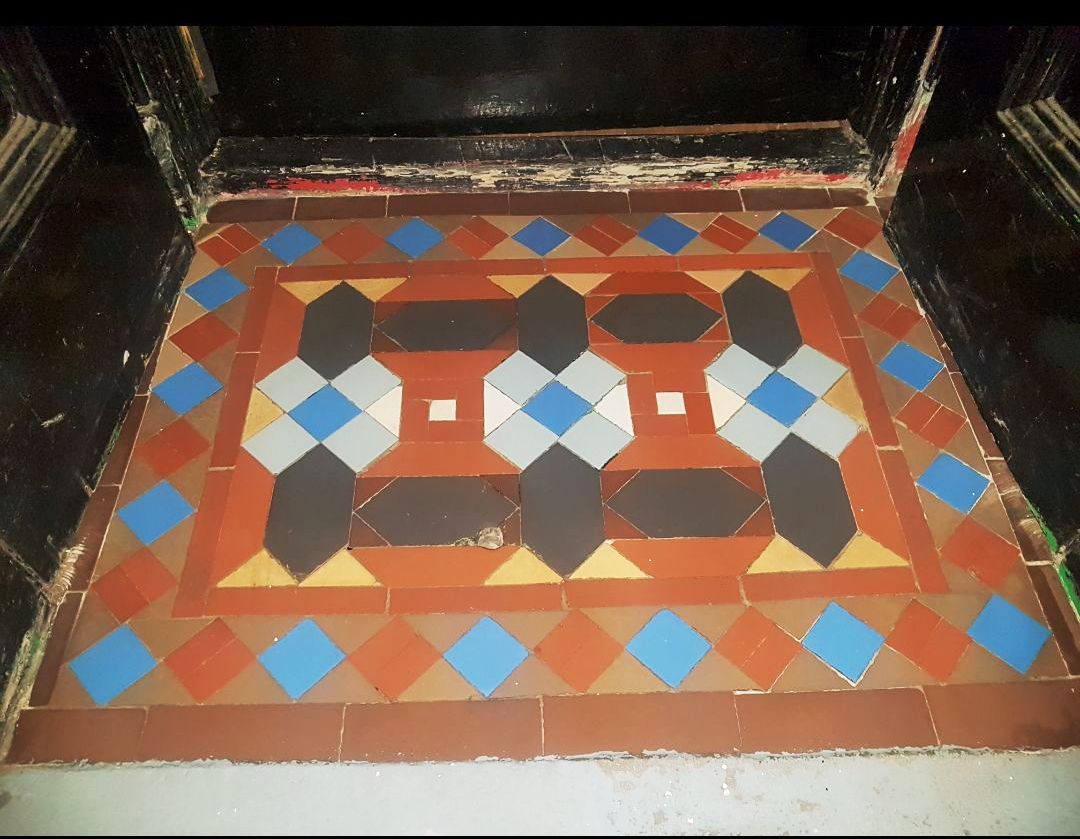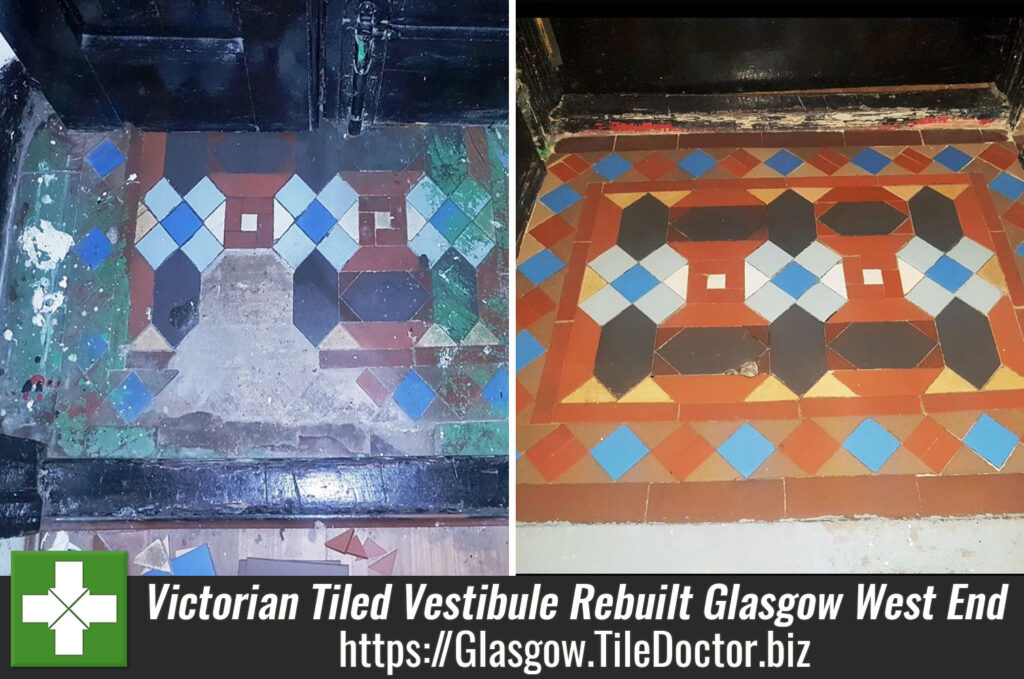Vestibules (aka entranceways) are not that commonly found in new build houses, but they certainly were a popular architectural feature back in the Victorian period. Many of the Victorian properties which are still in use today still contain their original geometric patterned encaustic cement tiles. These tiles can be very beautiful and colourful – that is if they’re kept looking that way with routine cleaning and maintenance.
I recently visited a Victorian property in Glasgow’s West End to carry out the restoration of one of these tiled floor vestibules. This Victorian tiled vestibule was in truly awful condition. Not only were the tiles caked in years’ worth of muck and paint stains – some of the tiles were completely missing or, at the very least, loose and damaged.

Cleaning and Rebuilding Damaged Victorian Entranceway Tiles
On the first day of work, our priority was to undertake a much needed deep clean of the tiles. This was done using Tile Doctor Pro Clean combined with Tile Doctor Remove and Go. Pro Clean is an alkaline-based cleaner specialised for heavy soil removal, while Remove and Go is formulated to strip away any old sealers, as well as the paint splashes that were very prominent on these tiles.

During the cleaning process, we could identify which tiles were loose, damaged and missing. These tiles were carefully removed and put to one side. Once the clean was completed the tiles were left to dry off overnight.
The next the floor had dried, and we started to rebuild the floor. This involved installing and grouting new tiles that we had previously sourced for the job to match as closely possible with the original pattern of the floor.
Next, the newly installed tiles were left to set, before we gave the floor an acid rinse using Tile Doctor Grout Clean-Up. This product removed any grout haze from the tiles and will neutralise any efflorescence salts that may rise up through the tiles as they dry. This issue can be quite a problem with older properties which don’t have a damp proof course installed.
Sealing a Victorian Tiled Vestibule
Once again, we left the floor to dry out completely overnight, this is especially important when applying a sealer to a tile as sealing damp tiles will lead to issues. We recommend the use of a damp meter at this point to ensure the tiles are indeed dry before sealing.
To seal the floor, we used three coats of Tile Doctor Colour Grow, which is ideal for these uniquely patterned Victorian tiles as it intensifies the different colours in the stone, while also offering a natural-look matte finish. Of course, the sealer will also provide the tiles with lasting protection again dirt and muck and is also breathable so any damp rising up through from the sub floor will be able to evaporate.
Photos really do speak louder than words in this case, as the restoration achieve some fantastic results. Take a look at the photo below – I’m sure you’ll agree the difference is incredible. Certainly, our very happy customer seemed to think so!



Tile Doctor have the products, equipment and training to tackle all sorts of tile and grout related problems including full restorations, removing Limescale, repairing cracked tiles and even stain removal with products such as Tile Doctor Reduxa which can lift Red Wine stains out of natural stone tiles.